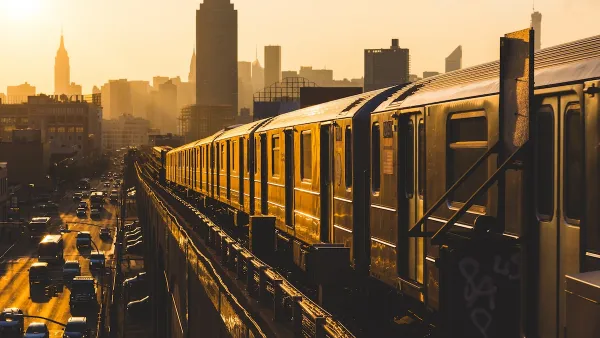New York City's privately-owned public spaces are back on the radar since protesters took over Zuccotti Park last month. Remnants of good-intentioned zoning that didn't quite do enough, the spaces are often far more lackluster than occupier-worthy.
"On paper, it reads like a great deal that, at little cost to the city, has given it enough additional public space to cover 10 percent of Central Park.
But the comparison between privately owned public spaces and Central Park stops there. Too many of them - roughly 40 percent, according to a 2000 study I conducted with the Department of City Planning and the Municipal Art Society and that still holds today - were and are practically useless, with austere designs, no amenities and little or no direct sunlight. Roughly half of the buildings surveyed had spaces that were illegally closed or otherwise privatized."
FULL STORY: Meet Me at the Plaza

Planetizen Federal Action Tracker
A weekly monitor of how Trump’s orders and actions are impacting planners and planning in America.

Chicago’s Ghost Rails
Just beneath the surface of the modern city lie the remnants of its expansive early 20th-century streetcar system.

San Antonio and Austin are Fusing Into one Massive Megaregion
The region spanning the two central Texas cities is growing fast, posing challenges for local infrastructure and water supplies.

Since Zion's Shuttles Went Electric “The Smog is Gone”
Visitors to Zion National Park can enjoy the canyon via the nation’s first fully electric park shuttle system.

Trump Distributing DOT Safety Funds at 1/10 Rate of Biden
Funds for Safe Streets and other transportation safety and equity programs are being held up by administrative reviews and conflicts with the Trump administration’s priorities.

German Cities Subsidize Taxis for Women Amid Wave of Violence
Free or low-cost taxi rides can help women navigate cities more safely, but critics say the programs don't address the root causes of violence against women.
Urban Design for Planners 1: Software Tools
This six-course series explores essential urban design concepts using open source software and equips planners with the tools they need to participate fully in the urban design process.
Planning for Universal Design
Learn the tools for implementing Universal Design in planning regulations.
planning NEXT
Appalachian Highlands Housing Partners
Mpact (founded as Rail~Volution)
City of Camden Redevelopment Agency
City of Astoria
City of Portland
City of Laramie




























